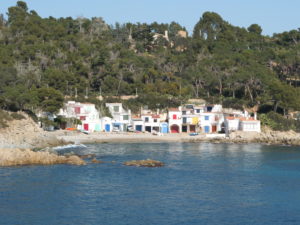
If you have recently bought a property in Spain, you will probably be enjoying the sun already. But because of Spanish Law is quite different from English Law and because you may feel quite lost or confused on what else to do apart from enjoying your new property, we take this opportunity to give you some TIPS on what entails being a property owner in Spain:
1.OWNERSHIP: It is important to bear in mind that there is no such thing as joint tenancy in Spain. When a couple buys a property in Spain, although they are married, the property will be owned in percentages. i.e. 50% each.
On the death of one the co-owners his/her share is not automatically transferred to the co-owner despite that they may be spouses (as it would happen with joint tenancy in the UK). On the contrary, the legal beneficiaries would inherit his/her share.
This is one of the reasons we would suggest you to sign a Spanish Will. There are some other reasons that we will be explaining further in future articles, but this is one of the main ones.
2. INCOME TAX: Non-residents have to pay an annual Deemed Income Tax (“impuesto sobre la renta”) for the simple fact of owning a property in Spain. It is advisable to appoint a Gestor as your “fiscal representative” to deal with your annual taxes.
It is important to comply with this tax rule, because at the time of selling the property, being non-residents, a 3% retention of the price will be withheld by the buyer and only if that non-residents Income Tax has been paid, you will be able to claim this 3% back.
3. ANNUAL PROPERTY TAX: Property owners are also liable for the annual property tax (“Impuesto sobre bienes inmuebles: IBI”). Its amount is fixed by the Town Hall and can be paid annually, quarterly or twice a year. This is something similar to your Council Tax. However, it is important to know, that although the property is rented, this should be paid by you as the owner.
Usually the above tax comes with an additional tax for waste collection and sewerage.
The Notary should send a communication to the Town Council informing about the property transfer and you will be responsible to contact the Town Hall to set up a direct debit for the annual charge, unless you engage a Spanish agent to deal with this.
4. NOTIFICATIONS: It is important to note, that Spanish Authorities and banks will keep your Spanish address as address for notifications. We strongly recommend ensuring the post is collected often either by you or by some friends or neighbours otherwise you can lose important communications.
5. COMMUNITY OF OWNERS: The Community of Owners will also be sending communications informing about the board meetings and potential costs at the property address. Attending the meetings is not always important but sometimes can be. We would recommend provide them with your e-mail and ensure they are aware of the content of their letters. Some of our clients prefer to engage us to deal with the community owners.
